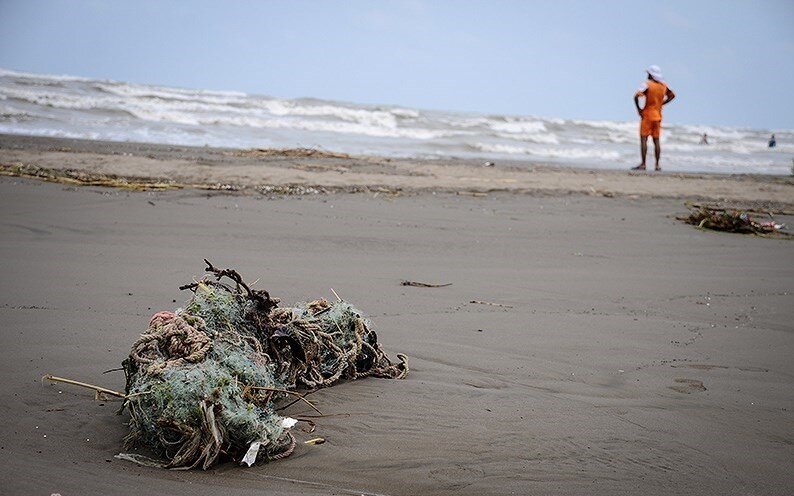Caspian Sea grappling with poor waste management

TEHRAN – Waste management in the Caspian Sea is on the verge of crisis and seriously threatens the Sea’s environment, Ahmad Reza Lahijanzadeh, deputy chief of the Department of Environment (DOE) for the marine environment, said.
He made the remarks on Monday on the occasion of Caspian Sea Day 2020, which is held annually on August 12, ISNA news agency reported.
The Caspian Sea is the largest enclosed inland body of water on Earth by area. It is bounded by Kazakhstan to the northeast, Russia to the northwest, Azerbaijan to the west, Iran to the south, and Turkmenistan to the southeast. The sea has a surface area of 371,000 square kilometers and a volume of 78,200 cubic kilometers.
Caspian Sea Day aims to raise awareness about the environmental ramifications of human interference with this valuable ecosystem. The day marks the Framework Convention, also called the Tehran Convention, signed by the official representatives of the five littoral Caspian states namely Azerbaijan, Iran, Kazakhstan, Russian Federation, and Turkmenistan in Tehran on November 4, 2003.
Emphasizing on the issue of waste management in the northern provinces as challenging the environment and affecting the Caspian Sea, he said that part of the waste enters the sea directly and the rest through rivers or the shores leading to the sea.
In addition to waste, leachate enters the sea through rivers or rainfall, and because the severity of leachate pollution is very high, it imposes a serious threat to the marine environment, he lamented.
Noting that the release of urban and rural wastewater into the sea is another problem the Caspian Sea is struggling with, he clarified that a number of cities in the northern provinces either do not have a wastewater treatment plant.
In other cities, there is a wastewater treatment plant, but the sewage network is incomplete and human wastewater is discharged into the sea, he added.
Stating that plastics and microplastics are among the issues that can be a threat to humanity in next 10 years, he noted that erosion makes microplastics out of plastic waste, and 70 percent of these are transferred directly to the seas, and therefore can enter the aquatic and human food cycle, causing damage to human health and marine biodiversity.
Emphasizing waste management in the country is a serious issue and the government and parliament should think of a solution urgently, he said that waste management is not appropriately done in the whole country, but in the north is on the verge of crisis, so the Interior Ministry and the parliament should address this issue and allocate the necessary funds.
During the last 25 years, the water level of the Caspian Sea has decreased by 130 cm, he said, noting that whether this decline will stop in the future is a matter of controversy, but given climate change and rising water consumption from the Volga River, the main source of water for the Caspian Sea, many believe that the water level will continue shrinking and the Caspian Sea will be smaller in the future.
The Caspian Sea water level has reached its lowest level since 1995, mainly because of a recent drop in the water level of the Volga River, which supplies most of the sea’s water, by about 22 percent.
In 2019, the average water level stood at -27.18 meters, showing 13 centimeters decrease compared to the year before.
According to the national center for Caspian Sea studies and research affiliated to the Water Research Institute, seawater temperature is one of the main criteria in heat exchange and an indicator in assessing the potential for evaporation from the water level, which is one of the main components of the Caspian water balance.
The increasing trend of the Caspian Sea surface temperature, especially in recent years, has been one of the factors affecting the reduction of water level.
FB/MG
Leave a Comment